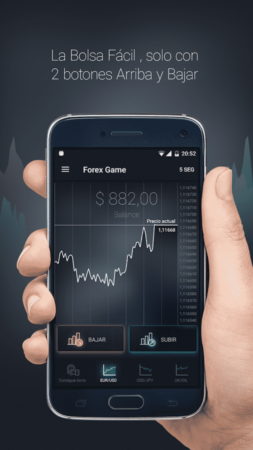Are you fascinated by the allure of financial markets and the potential of multiplying your hard-earned money? The foreign exchange (forex) market and the realm of online stock trading beckon you with their promise of wealth and excitement. But beneath the gleaming skyscrapers and bustling trading floors lies a complex world of currencies, stocks, and endless data points that can seem daunting to the uninitiated. Fret not, for in this comprehensive guide, we will embark on a thrilling journey through the forex game and online stocks, unraveling their intricacies and empowering you to navigate these financial landscapes with confidence.

Image: www.youtube.com
Venturing into the Forex Arena: The Symphony of Currencies
The forex market is a vast, decentralized marketplace where the world’s currencies are traded. Unlike traditional stock exchanges, there is no physical trading floor; rather, transactions occur electronically over-the-counter (OTC). The value of currencies fluctuates constantly, driven by a myriad of macroeconomic factors, from interest rates and inflation to political events and global trade. Traders seek to profit from these fluctuations by buying and selling currencies at the optimal time:
Unveiling the Forex Participants: A Diverse Ensemble
Central banks, investment banks, corporations, hedge funds, and retail traders contribute to the dynamic of the forex market. Central banks play a crucial role in regulating currencies and managing monetary policy, while investment banks facilitate large-scale transactions. Corporations enter the market to hedge against currency risk when conducting international business. Hedge funds employ complex trading strategies to capitalize on market inefficiencies. Retail traders, ranging from seasoned professionals to aspiring investors, seek to profit from short-term currency fluctuations.
Mastering the Jargon of Forex: Navigating Financial Lexicon
Pips, spread, leverage, and margin are essential terms in the forex lexicon. Pips measure the smallest price change in a currency pair, typically the fourth decimal place. Spread refers to the difference between the bid and ask prices, and leverage allows traders to multiply their potential profits (and losses) by trading with borrowed capital. Margin is the amount of money that traders must maintain in their accounts as collateral for leveraged positions.

Image: descargar.org
Delving into Online Stock Trading: Owning a Slice of Corporate Giants
Online stock trading has made investing in the stock market more accessible than ever before. Through online trading platforms, you can buy and sell shares of companies listed on stock exchanges around the world. Each share represents a fractional ownership of the company, and its value fluctuates based on supply and demand, as well as the company’s financial performance and growth prospects.
Navigating the Stock Market Maze: Understanding Key Concepts
At the core of stock trading lies the concept of supply and demand. When demand for a stock exceeds supply, its price rises; conversely, when supply exceeds demand, prices fall. It is crucial to analyze company fundamentals, market trends, and news to make informed trading decisions.
Forex Game – Online Stocks
Investing Styles: Unveiling the Art of Stock Selection
Value investing seeks to identify stocks that are trading at a discount to their intrinsic value while growth investing focuses on companies with high-growth potential. Income investing prioritizes regular dividend income, while speculative trading involves short-term trades to capitalize on price fluctuations.







